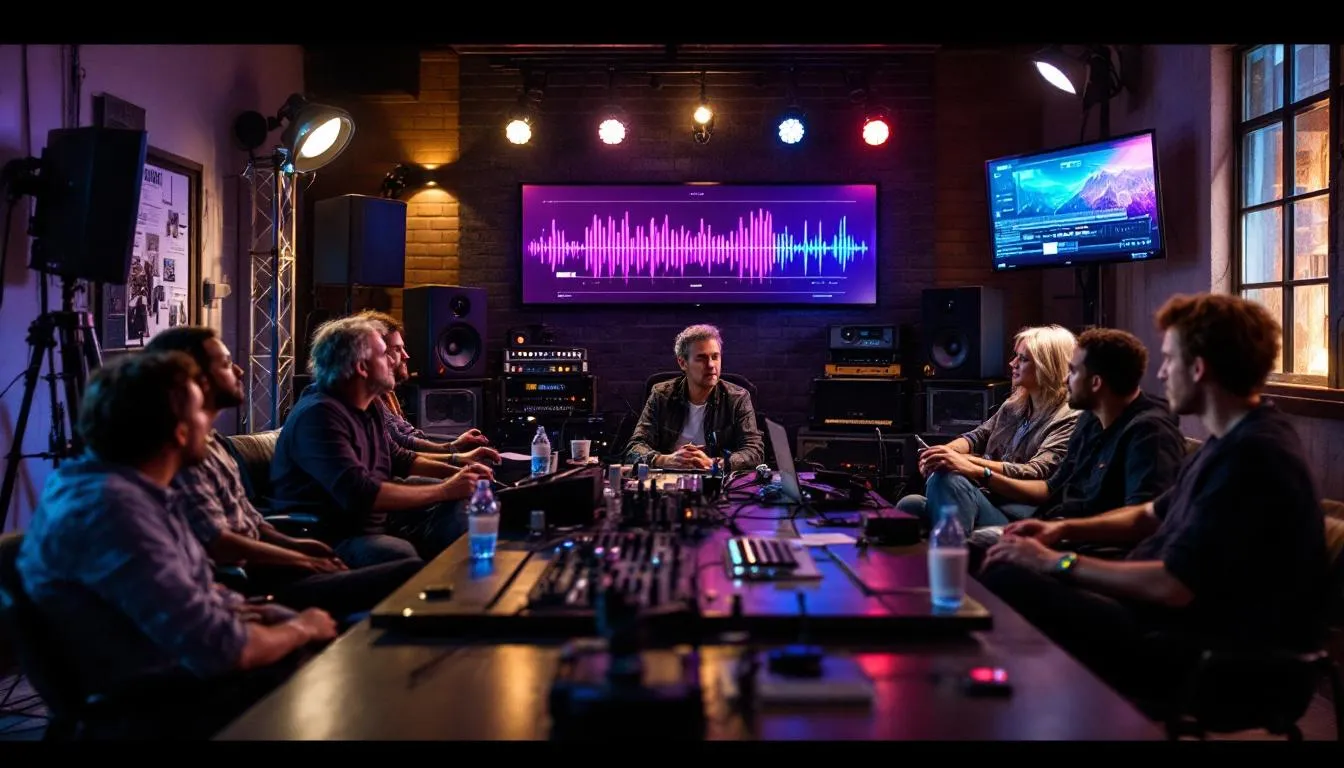
How the Universal/Warner AI Licensing Deal Will Reshape Revenue for Artists
07 October, 2025
Artificial intelligence is no longer an outsider in music. With a new licensing agreement between Universal Music Group (UMG) and Warner Music Group (WMG), AI’s relationship with the music business just became official. The deal marks a major turning point for how artists will earn money, how their work will be used, and how technology and creativity will coexist in the years ahead.
What the Deal Covers
UMG and WMG have created a licensing framework specifically for AI-generated music. It allows AI companies to legally use the labels’ catalogs to train their algorithms and generate new works while ensuring rights holders are paid.
Unlike traditional licensing for streaming or physical sales, this deal explicitly includes AI training data and AI-generated outputs. It sets parameters for how and when music can be sampled, how long it can be used, and how profits will be shared. Artists whose songs help train or inspire AI models are now entitled to royalties.
That last part matters. Until now, most AI music systems used copyrighted recordings without approval or payment. This agreement formalizes that relationship and ensures that artists benefit financially when their music contributes to AI-generated content.
Why It Matters Now
AI’s influence in music is growing fast. Tools like OpenAI’s Jukebox, Amper Music, and AIVA can already compose melodies, harmonies, and even full tracks. The legal system, however, hasn’t kept up. Many AI models were trained using copyrighted music, creating a grey area that has already led to lawsuits.
By moving first, Universal and Warner are setting an industry standard. Their deal gives AI developers a legal and ethical way to train on real music, while also protecting intellectual property. It may also reduce future litigation by clarifying who owns what in an AI-generated world.
The move reflects a broader shift in entertainment. Rather than fighting technology, major players are starting to work with it. This approach encourages innovation, allowing artists and AI to coexist and potentially collaborate in new creative ways.
How Artists Will Earn from AI
The biggest takeaway for musicians is the creation of a new revenue stream. Artists already earn from sales, streams, shows, and licensing. Now, they could be paid when their music is used as training data or influences an AI-generated song.
If an AI model generates music derived from an artist’s catalog, that artist will receive a share of the revenue. This monetizes a previously unregulated part of the industry and could become a meaningful income source as AI music expands.
The challenge is transparency. AI systems may pull from thousands of tracks when creating new works. Identifying exactly which artists contributed and calculating fair payment will require robust tracking systems. The Universal and Warner deal is expected to push development of those tools and help set standards for AI-related royalties.
Balancing Creativity and Control
Licensing music for AI raises deeper questions about artistic control. AI can now replicate styles, voices, and production techniques. While that opens creative possibilities, it also risks blurring the line between homage and imitation.
By offering controlled access to their catalogs, UMG and WMG are protecting artists from unauthorized use while still supporting innovation. The balance between creative freedom and ownership will be a defining issue for the next decade of music.
Legal experts also point out that the deal may serve as a precedent for how courts treat AI-generated works. If a song created by AI becomes indistinguishable from one made by a human, determining originality and ownership will become increasingly complex.
Impact on the Wider Industry
This deal signals that AI is welcome in music, but only within clear ethical and legal boundaries. It invites cooperation rather than conflict. AI companies get access to legitimate data, labels gain new business opportunities, and artists are fairly compensated.
Universal and Warner’s leadership is likely to push others to follow. Independent labels, publishers, and performing rights organizations will need to adjust quickly. A more standardized licensing system could emerge, creating consistency across the entire industry.
What Artists Should Do
Artists should stay informed about how these licensing models evolve. Understanding the terms, keeping an eye on transparency measures, and engaging with organizations that advocate for fair digital rights will be essential.
They should also explore AI as a creative tool. Used thoughtfully, AI can help generate new melodies, spark ideas, or remix existing material in ways that expand human creativity rather than replace it.
A New Chapter for Music and AI
The Universal and Warner AI licensing deal marks the first serious effort to merge music’s creative legacy with the future of machine learning. It protects artists while acknowledging the role AI will play in shaping modern music.
For musicians, it introduces a new source of income and a new responsibility to stay engaged with how their work is used. For the industry, it creates a framework that can support both innovation and integrity.
This deal is not just a business transaction. It is the start of a blueprint for how art and technology can evolve together, fairly, transparently, and creatively.
